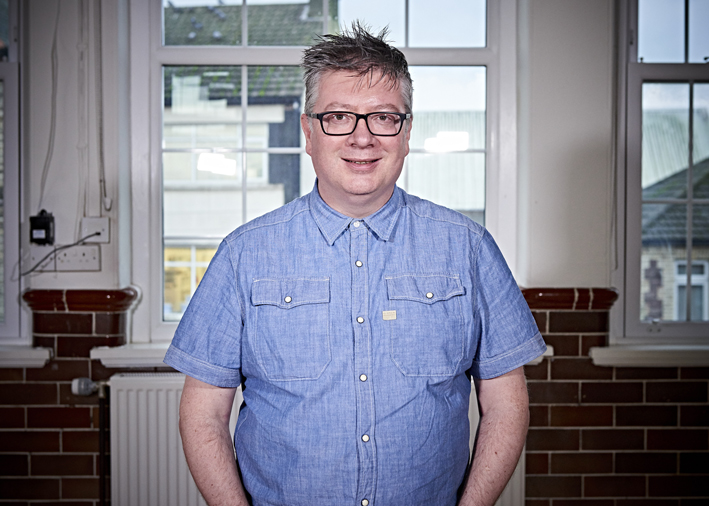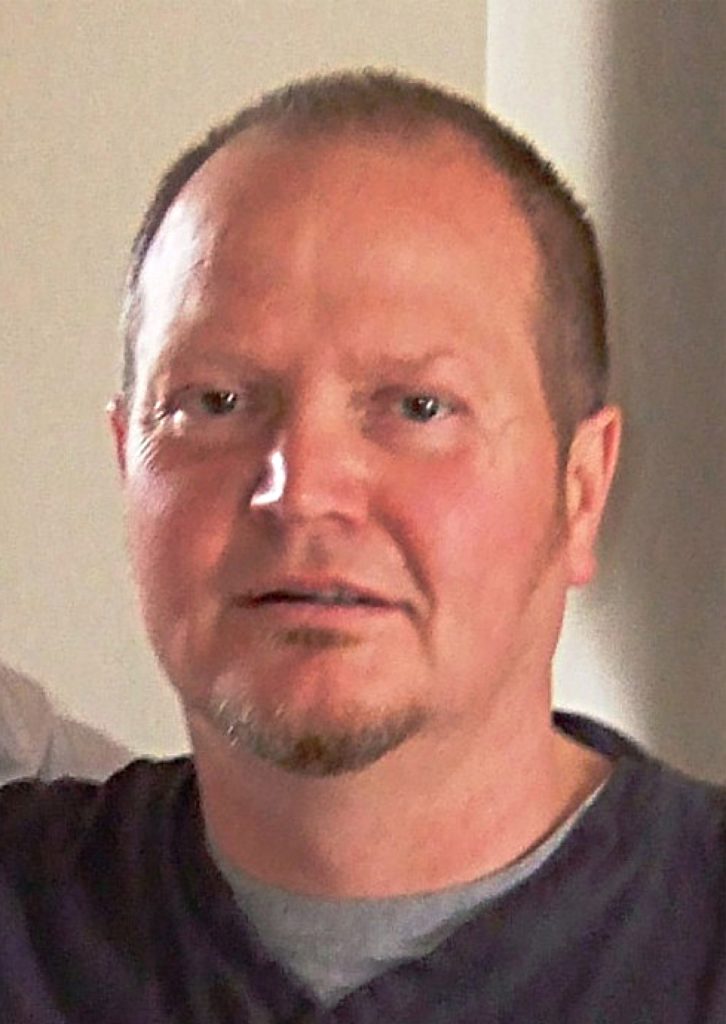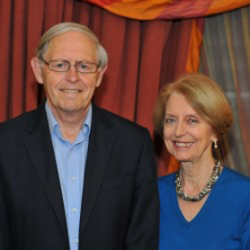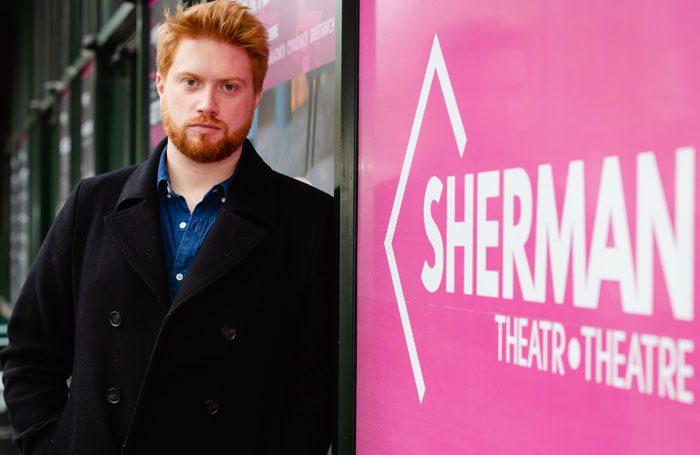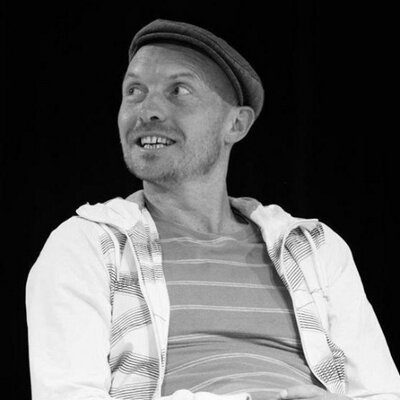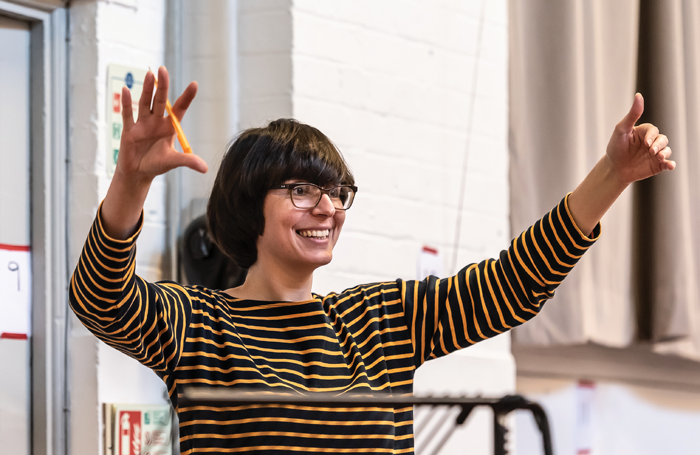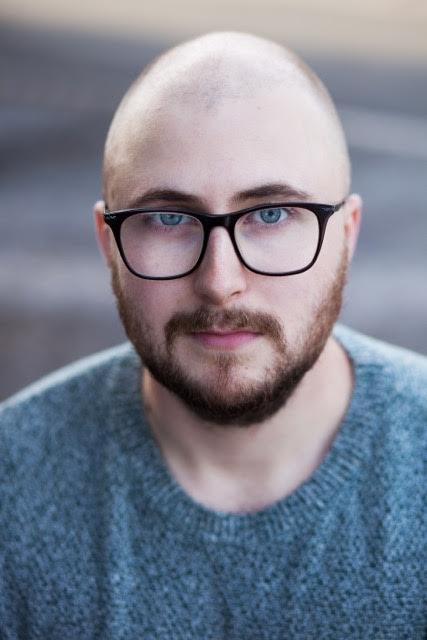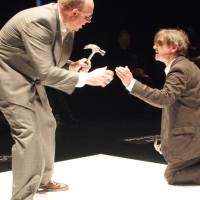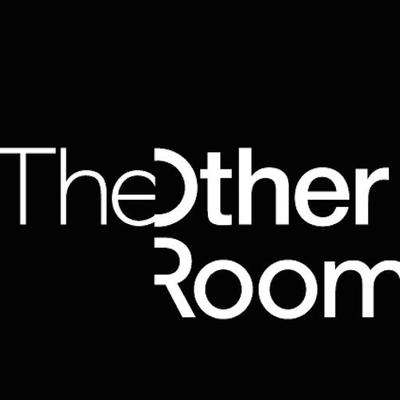
Hi Tracy great to meet you, can you give our readers some background information on yourself please?
Hello. I’m from Swansea. I went to an amazing creative primary school where we were taught Beatles songs, bombarded with the chronicles of Narnia and where I met some of my closest friends. I then went to a pretty tough all girls school where I met girls from all walks of life and then I went to Gorseinon College where under the brilliant Simon Pirotte, my love of theatre grew. I then went to Lancaster Uni to study Experimental Theatre after being highly influenced by Volcano, and as part of that course I did a playwriting module where I wrote my first play ‘past away’ which was commissioned by Sgript Cymru, on my return to Wales. I then went on to write a number of plays for the Sherman and other companies. Alongside writing,I started making TV Documentaries and set up ‘Gritty Productions’ with Chris Rushton. We make hard hitting films and radio programmes for BBC about homelessness, prostitution, and the benefit system.I also make my own performance work, writing and performing and collaborating with other artists, which is more experimental/ autobiographical.
So, what got you interested in the arts?
Well there’s definitely been a number of inspirational teachers along the way. Then my Dad used to make up silly bedtime stories and I’d always loved dressing up and making up songs, so I guess it secretly was always there. My sister whose an English teacher now, definitely passed on to me the love of words and stories. I never really went to the theatre growing up other than the Christmas panto at the Grand Theatre with the social club, my parents used to go to. The earliest memory I have of theatre was when I was 6, my infants school were doing a production of The Wizard of Oz. The teacher’s asked for people to volunteer to sing and my friend Lucy literally pushed me on to the stage. I was terrified but I did it, and I got the part of Dorothy, that moment actually propelled me into theatre and I’ve loved it ever since.
Can you tell us about your writing process? Where do your ideas come from?
Ideas come to me randomly, often when I’m out and about, sometimes from images, sometimes from conversations I’ve heard or had or something I’ve read. I’m a bit of a hoarder, so I often keep postcards, photos, bits of text etc and they get recycled. I’ll often think of visual moments first and write from images/ photo’s as starting points and then plays start to build from there. I also like to think about what I’m scared of, or what questions I want to ask about the world right now and that often starts my brain ticking.
Can you describe your writing day? Do you have a process or a minimum word count?
Since having Hartley, my 4 year old, my writing process has changed (for the better I think) Now, because of time restraints, I write for a few hours in the morning while he’s at nursery and then at night when he’s gone to bed. I have to be much more structured and give myself deadlines and tasks, like to complete a scene in a morning, but I think that definitely has made me procrastinate less and value my writing time more.
Why and where do you write?
I write because I often find that’s the only way I can express what I really want to say about the world. I often write when I have a strong feeling or instinct about something that I really need to say and don’t know how else to articulate it. Normally I write on my desk at home. It’s an old-fashioned writing desk, which we’ve named William! I like to think about the stories that were created on it previous and the people who sat at it. I also have a few little inspiring things on there and things that are important to me- they keep me going when I get stuck. I also often have music that I rely on for the play and will listen to that constantly through the process. (I tidied it for this photo!)
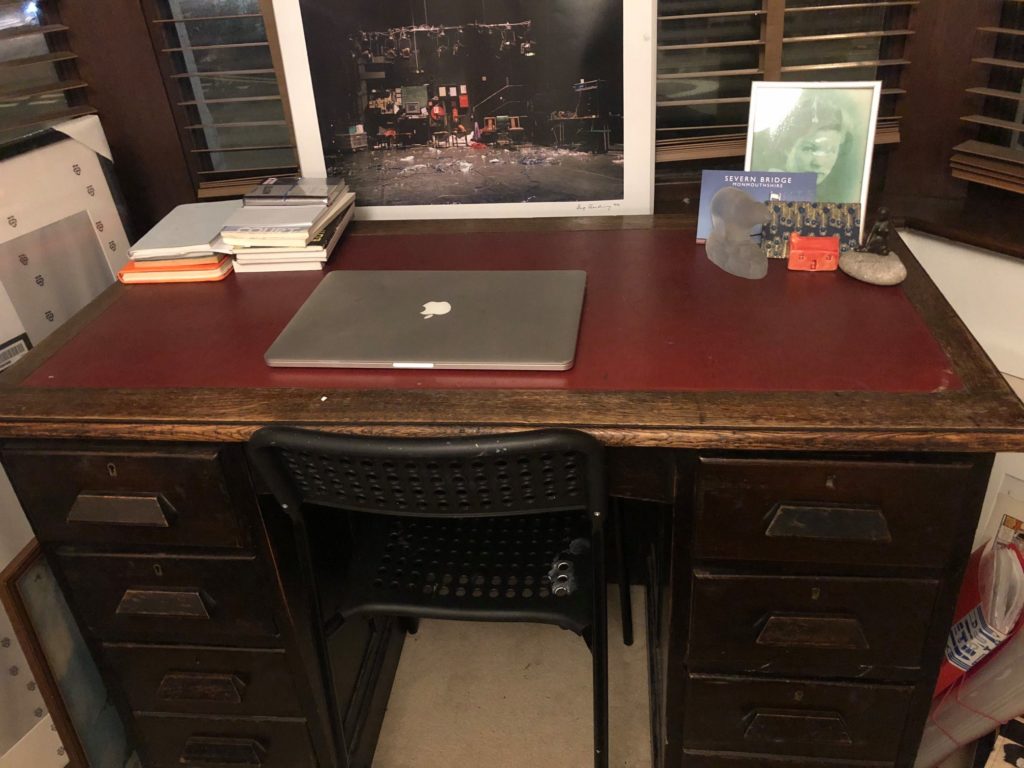
Your latest play Ripples, co-produced by Royal Welsh College of Music & Drama in collaboration with Sherman Theatre takes place in a group rehab centre in Bridgend. It “compassionately explores what leads us to seek help.” How did you come to tell this story?
I think every play is different and therefore has a different approach. With Ripples the commission and challenge was to write a play for 8 people, which is both terrifying and exciting. I did a lot more planning with Ripples at the start of the process, thinking about where 8 characters may be thrown together in a dramatic situation. I also really wanted to challenge myself to write a play where the 8 characters are on stage for the majority of the play together- That was a big challenge I tell you!
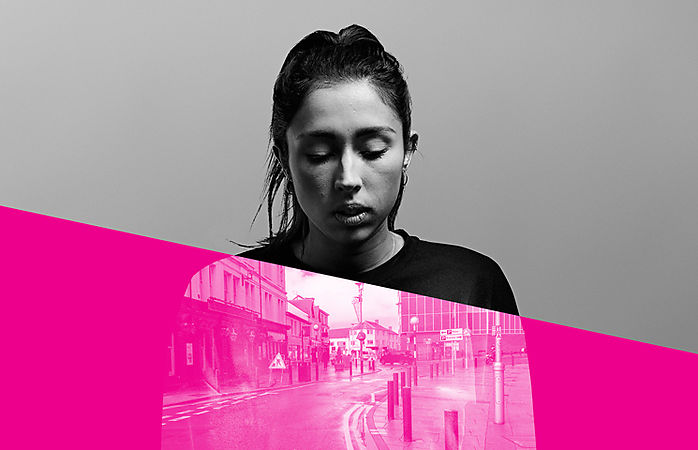
As I mentioned, as well as theatre, I make Documentaries and a few years ago, I had been doing a lot of research about Rehabs and found a brilliant one in Bridgend and that place always stuck with me. Then I had questions about how I felt about the world right now- I was thinking a lot about ‘How do you fix people in a world that’s broken?’ Where are the safe places? and also personally about how I felt overwhelmed by the constant bombardment of bad news stories and out of the combination of all those seeds, Ripples started to grow.
Why did you choose Bridgend as the location of this play?
I chose Bridgend as that’s where the original rehab I had been researching was, but spoiler alert- this isn’t a play specifically about Bridgend and it isn’t verbatim either, although I have done a lot of research to make sure the stories are authentic and true to what might go on there. I think with every play, you have to find the right form and story for that play, so the actual Rehab and Bridgend as a place was just a starting point. I then starting thinking more about the technique I wanted to explore in the play and the characters I wanted to create. I was drawn to psycho-drama as I felt this was the most dramatic and instinctive technique that I could play with. The great thing about the New season is that you get to work with the actors and director early on in the process to workshop the script, so they have been involved and invested right from first draft stage and this has been invaluable, as I’ve been able to bounce ideas around with them and really flesh out the characters and stories collaboratively- and they are a really talented bunch- so that’s such a treat!
With productions such as We’re Still Here by NTW portraying the lives of Neath Port Talbot Steel Workers. Theatr na nOgs production Nye and Jennie examining the political background and personal inspiration of Aneurin Bevan and Jennie Lee, and your new production based on the real lives experiences Bridgend residents do you feel that Welsh Theatre is presenting representative stories of its citizens on our stages?
I think it’s important to tell welsh stories that have a universal reach, so for me the themes of the play; Trauma, Survival, Empathy and Compassion can all relate to Wales but also have bigger resonances in the world right now.
The next project that I am working on with Paul Jenkins is wholly a verbatim play about the Banksy that appeared in Port Talbot and this is specifically a Welsh story, right from the heart of the community in Port Talbot, but again it raises universal questions about community, art, money and values and I think I’m drawn to projects that do that.
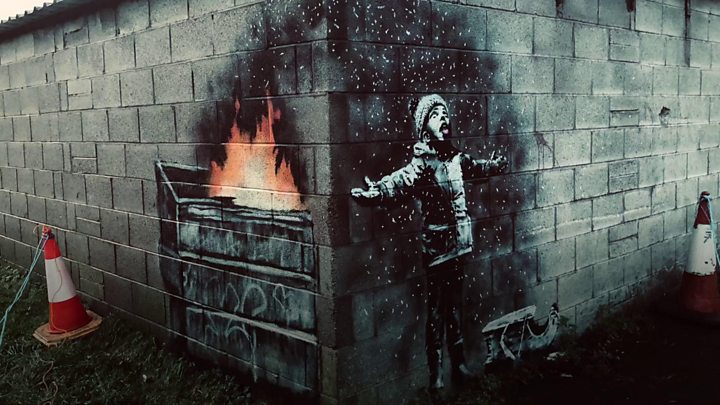
There are a range of organisations supporting Welsh and Wales based writers, I wonder if you feel the current support network and career opportunities feel ‘healthy’ to you? Is it possible to sustain a career as a writer in Wales and if not what would help?
This is a tough one. I think there are opportunities in Wales, but they are few and far between and often there a lot of people fighting for those opportunities and commissions, so you have to keep proving yourself or have someone fighting your corner. I couldn’t survive just writing plays, but I also wouldn’t refer to myself as wholly a playwright as I love working in TV and film and creating my own work. I find that I need that variety to keep my creative juices flowing I feel extremely lucky and thankful to Simon Harris, who took a massive chance on me (back in the day as a young 22 year old, first time writer) and more recently Wyndham Price who last year commissioned my first feature film and Philip Carne who has supported my last 2 plays, without those people I definitely wouldn’t be writing now. Also I feel it’s great to have development schemes, readings and competitions, but playwrights need productions and I wish there was more money being thrown at dramaturgical support and development that could lead to this.
Sherman Cymru have recently announced the reinstatement of their literary department, on a one year pilot basis funded by ACW. What does this say to you as a Playwright as regards the venues intention to support your craft? What change do you hope will be realised with this new department at Sherman Theatre?
The news of a new literary department at the Sherman is really exciting as I feel there has a been a big gap in Wales in this area. Hopefully this will mean more plays will get read and developed so more voices will be discovered and produced, which is really a brilliant thing. Joe Murphy at the Sherman, Paul Jenkins and Adele Thomas have been great dramaturgical support and I think it’s important for writers to have that support early on in the process, from people that they trust. I think I need to be challenged as a writer. I need to be able to talk about my work and have people really interrogate me about my ideas- this has been invaluable for me to progress further.
If you were able to fund an area of the arts in Wales what would this be and why?
There are so many things I would like to fund, but if I had to choose one, I would fund writing/theatre workshops for younger people. I think we really have to nurture that next generation of welsh talent, support them and encourage them to get their voices heard
What excites you about the arts in Wales?
I love the network of artists in wales. I often rely on my fellow artists to bounce ideas around and give me feedback on scripts. I also like to repay the favour when I can and I think that that critical eye is crucial in order for us to keep upping our game and challenging ourselves to be bolder and braver. The Playwrights programme and the JMK directors programme at Sherman Theatre were both brilliant as I feel from that I have developed a great network of writers/directors who I can now call upon and trust; Working with Hannah Noone on previous plays and Matthew Holmquist on ‘Ripples’ has been such a joy.
The new Unheard Voices scheme the Sherman has just launched is a brilliant step in the right direction- we definitely need more female voices on our stages! and the literary department is such an exciting thing too and I really hope it will encourage the next generation to get writing, and all those writers with plays in their bottom drawers to dig them out and develop them further.
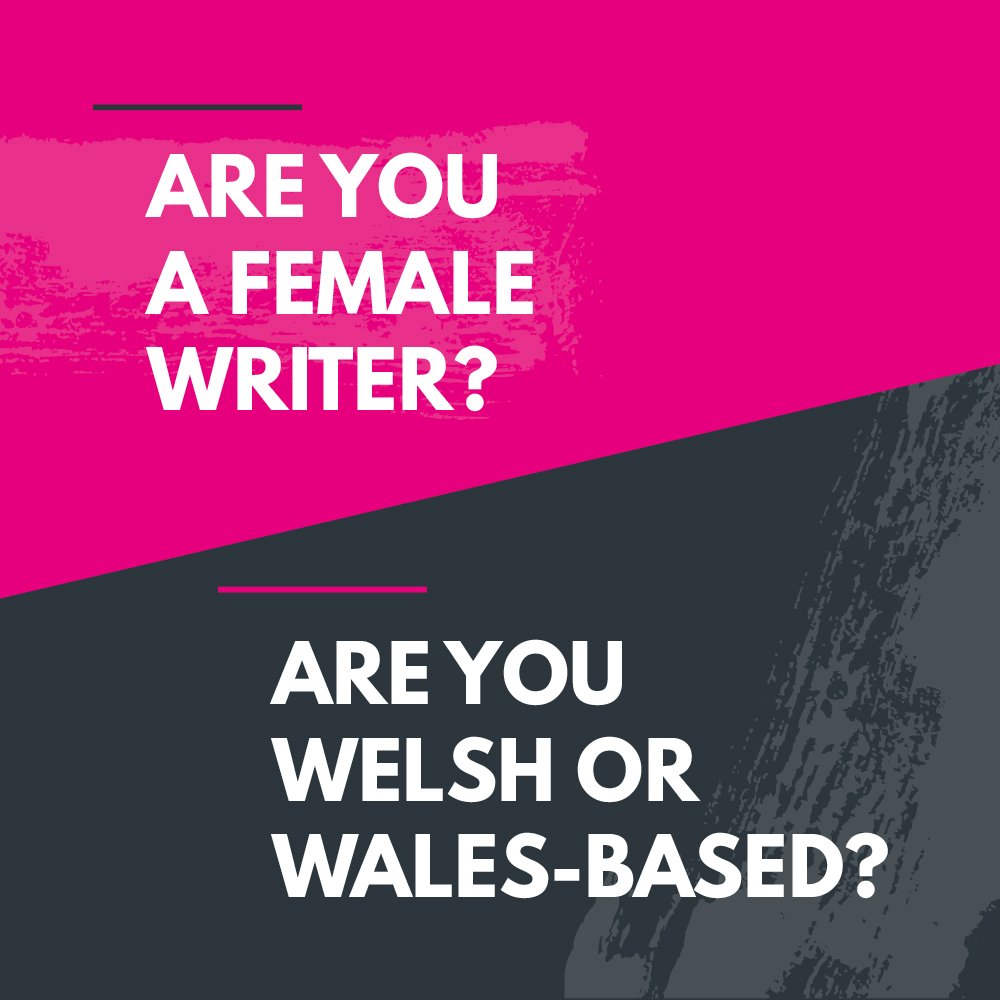
I think there’s some great companies doing exciting things and supporting new work; Theatr Iolo, Mr and Mrs Clark, Good Cop, Bad Cop, Chippy Lane, Dirty Protest, The Other Room to name a few.
What was the last really great thing that you experienced that you would like to share with our readers?
The last show I saw that really hit the emotional button for me was; I’m a Phoenix Bitch by Bryony Kimmings at BAC. I’ve always loved her work it’s honest, raw and emotional and she’s one of my biggest inspirations. It’s on at Mayfest in Bristol, if you get chance to catch it- I’d highly recommend it.
Thanks for your time Tracy.

